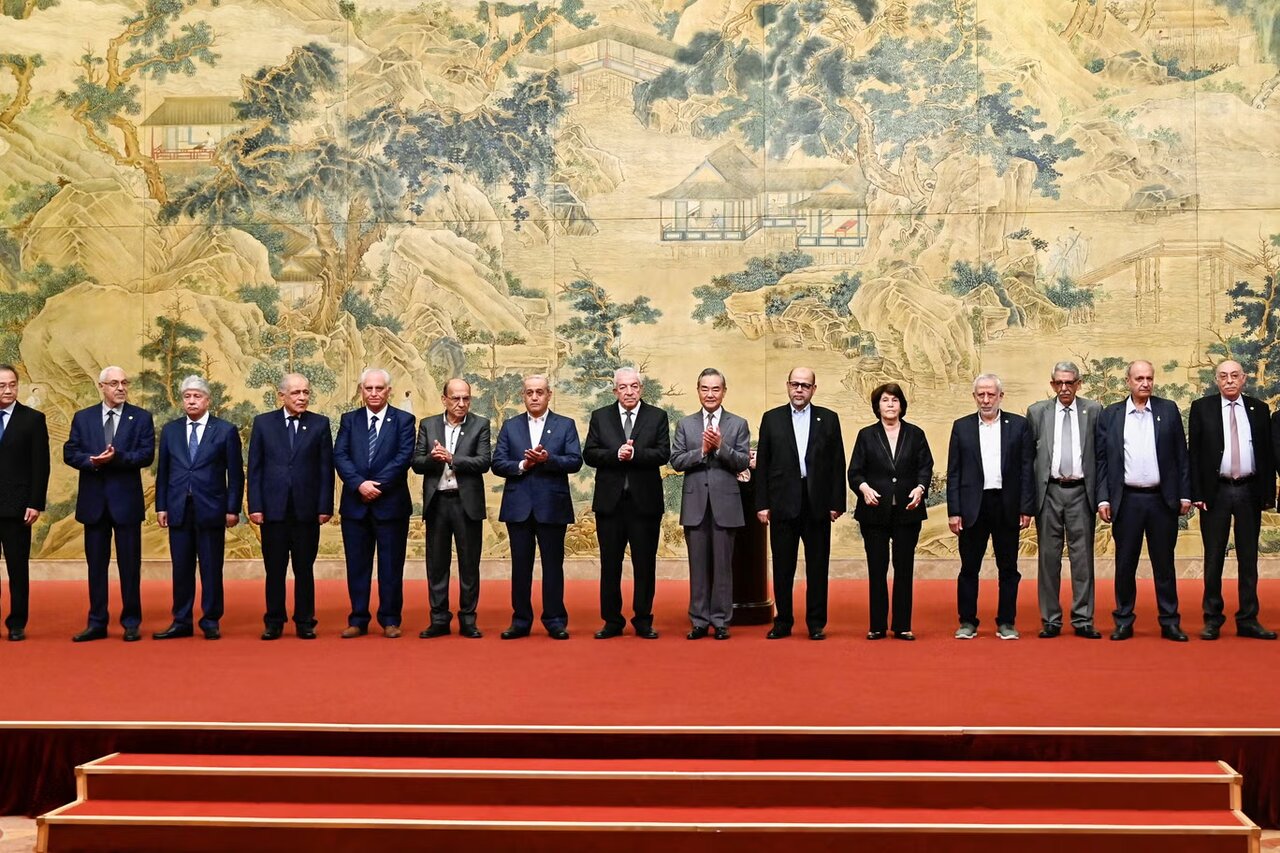China’s pivotal role affirmed in Xi’s ‘Palestinians governing Palestine’ message

TEHRAN – Chinese President Xi Jinping’s remarks on the International Day of Solidarity with the Palestinian People highlight China’s constructive role in Middle Eastern diplomacy.
By stressing that the Palestinian issue is central to regional stability and global justice, Xi frames it as a test of international governance. His principle of “Palestinians governing Palestine” affirms sovereignty and rejects externally imposed solutions. This vision builds on Beijing’s mediation efforts, notably the 2024 reconciliation talks where 14 factions, including Hamas, Fatah, and Islamic Jihad, signed the Beijing Declaration.
China’s ability to convene rival Palestinian groups in Beijing demonstrated its credibility as a mediator. The Declaration was not only symbolic but also a practical step toward unity, showing that China can foster dialogue where other initiatives have stalled. Xi’s latest remarks reinforce this achievement, positioning Beijing as a consistent advocate of Palestinian consensus. Unlike Western-led processes often criticized for bias, China’s approach emphasizes inclusivity and respect for all factions, strengthening its image as a neutral broker and a reliable partner in the search for peace.

China’s Foreign Minister Wang Yi (C) poses for a group picture with members of the Palestinian factions during the signing of the ‘Beijing declaration’ at the Diaoyutai State Guesthouse in Beijing in July 2024 (AFP via Getty)
Since the Gaza war began in October 2023, China has consistently called for an immediate ceasefire, condemned harm to civilians, and advocated for a two-state solution. Beijing has delivered humanitarian aid to Gaza, supported UN relief operations, and used its UN Security Council seat to push for resolutions prioritizing Palestinian rights. These actions give weight to Xi’s solidarity message, showing that China’s words are matched by deeds. By combining diplomatic pressure with material assistance, Beijing has positioned itself as a dependable ally for the Palestinian people, one that is willing to shoulder responsibility and act where others hesitate.
Xi’s message reflects China’s broader philosophy that genuine peace must be rooted in dignity and self-determination, not in arrangements imposed from outside.
Xi’s remarks also resonate with China’s broader initiatives, particularly the Global Security Initiative (GSI) and the Global Development Initiative (GDI). His call for fairness, justice, and correcting historical injustices echoes the GSI’s emphasis on dialogue-based security, while the humanitarian focus reflects the GDI.
Situating Palestine within these frameworks signals that China’s vision of a “community with a shared future for mankind” includes Palestinian sovereignty as a cornerstone. In this way, Xi’s message is not isolated rhetoric but part of a coherent foreign policy that integrates Middle Eastern diplomacy into China’s global outlook.
Taken together, Xi’s remarks and China’s actions since October 2023 illustrate a coherent and principled policy. Beijing is not only voicing solidarity but actively shaping conditions for peace through mediation, aid, and advocacy at the UN. This stance strengthens China’s credibility among Arab and Global South nations, while aligning with its broader initiatives on security, development, and fairness. In endorsing Xi’s position, one can argue that China is emerging as a responsible power in the West Asia, one that combines moral clarity with practical diplomacy and places Palestinian rights at the center of a just international order.
